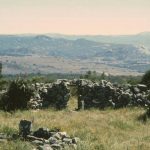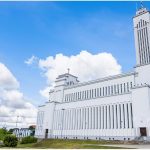Greece Melic Poetry Part II
Indeed, in the Peloponnese, both in Sparta and in the remaining cities, poetry and all the arts in general never had a great splendor. The Dorians – at least in the motherland – proved to be the least productive and less inclined to spiritual interests in this respect: precisely because the spiritual life was overwhelmed and suffocated in them by practice; citizens only had the duties of the militia and the state; the arts relied on immigrant foreigners, such as Terpandro, Arione, Alcmane, Tirteo, etc. But a much more favorable terrain also opened up to the Dorians, in the Western colonies: in Sicily and in Magna Graecia; where they managed to break away from the distress of their tradition and created a new culture, rich, powerful, flourishing. The detachment from tradition, the mixing of blood (since there the Dorians met with the Ionians, as well as with other peoples of different lineages), the prosperity of the lands, the variety of trade, the novelty of impressions: all this served to produce a more faster and more intense, as usually happens in colony lands, and as had in fact happened to the Greeks themselves (Aeolians and Ionians) in the colonies of the East, which had appeared earlier and more fervent than the motherland, especially with the magnificent creation of the epos. The Doric-Ionic West now responds to the Aeolian-Ionian East, waiting for the Attic civilization to awaken later in the middle, in the heart of the motherland. the variety of trade, the novelty of impressions: all this served to produce a faster and more intense pace of life, as usually happens in colony lands, and as it had happened to the Greeks themselves (Aeolians and Ionians) in the colonies of the East, which had manifested themselves earlier and more fervent than the motherland, especially with the magnificent creation of the epos. The Doric-Ionic West now responds to the Aeolian-Ionian East, waiting for the Attic civilization to awaken later in the middle, in the heart of the motherland. the variety of trade, the novelty of impressions: all this served to produce a faster and more intense pace of life, as usually happens in colony lands, and as it had happened to the Greeks themselves (Aeolians and Ionians) in the colonies of the East, which had manifested themselves earlier and more fervent than the motherland, especially with the magnificent creation of the epos. The Doric-Ionic West now responds to the Aeolian-Ionian East, waiting for the Attic civilization to awaken later in the middle, in the heart of the motherland. which had manifested earlier and more fervent than the motherland, especially with the magnificent creation of the epos. The Doric-Ionic West now responds to the Aeolian-Ionian East, waiting for the Attic civilization to awaken later in the middle, in the heart of the motherland. which had manifested earlier and more fervent than the motherland, especially with the magnificent creation of the epos. The Doric-Ionic West now responds to the Aeolian-Ionian East, waiting for the Attic civilization to awaken later in the middle, in the heart of the motherland.
The first representative of this Western culture (Siceliot and Italiot), distinguished representative of the Doric choral lyric, is – between the seventh and sixth centuries – Stesicoro d’Imera: who by the ancients was qualified as a second Homer, because, as he says Quintilian, bore the weight of the epos with the lira. In fact, his choral compositions were poems of mythological and legendary subject, and often reached considerable breadth. In his production, so abundant and multiple, the enormous patrimony of the heroic traditions of Homer and of the epic cycle (Destruction of Ilio Elena, Orestea, Gerioneide, Scilla, Cicno, Cerberus) converged, etc.); to which he added humble local legends, of a romantic and rural nature (Dafni, Calica, Radina); and it all recast in a rather intimate, sentimental, subjective way. Thus, while in the East and on the Hellenic continent the epic tradition was exhausted by becoming heavy in the massive historical-chronological narratives of the cyclicals and in the genealogies and catalogs of the school of Hesiod, in the West, on the other hand, under the stimulus of new impressions, it rose through the work of Stesicoro to a new life.
Continuator of Stesicoro was Ibico of Reggio; which, however, now belongs to the second half of the century. VI, and in some respects brings us back to the oriental environment. In fact, although he was directly dependent on the poet of Imera, he carried out most of his activity not in his country of origin, but in the East, at the court of Polycrates in Samo; and he not only composed mythological or legendary poems in the Stesicorean manner, but rather was particularly celebrated for his erotic songs in which he vented, rather, the ardors of passion, in the manner of the Lesbians and the Ionians (in fact at the court of Policrates he met with Ionic Anacreon, heir of the Lesbians). This shows that times were also changing with regard to Doric choral art: the differences from country to country tended to diminish; the various currents of poetry mingled with each other. Choral poets were no longer, as they originally were, closely linked to public functions; they ceased to be the interpreters of the city to pass into the service of princes; they were called from court to court, in the dynasties that arose both in Sicily and in the continent and in the Aegean islands. Along this line of development we will meet, on the border with the Attic period, the figures of the most renowned choral lyricists: Simonides di Ceo, Pindaro, Bacchilide; which for the most part still depend on the past, but on the other hand they are facing the new age. city interpreters to pass into the service of princes; they were called from court to court, in the dynasties that arose both in Sicily and in the continent and in the Aegean islands. Along this line of development we will meet, on the border with the Attic period, the figures of the most renowned choral lyricists: Simonides di Ceo, Pindaro, Bacchilide; which for the most part still depend on the past, but on the other hand they are facing the new age. city interpreters to pass into the service of princes; they were called from court to court, in the dynasties that arose both in Sicily and in the continent and in the Aegean islands. Along this line of development we will meet, on the border with the Attic period, the figures of the most renowned choral lyricists: Simonides di Ceo, Pindaro, Bacchilide; which for the most part still depend on the past, but on the other hand they are facing the new age.













